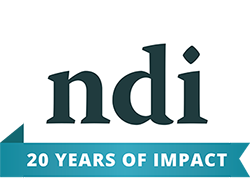By Becky MacDicken, Director, Financial Empowerment, National Disability Institute
As we live through a period of economic fluctuations, we may find ourselves looking for extra money. That question of, “How can I find more money?” is in the back of most of our minds.
Whatever your situation, there are two sides to the idea of creating space in your budget: money coming in (income), and money going out (expenses).
For income, you may be already doing all that you can to bring in more money. You may have a disability that is preventing you from working more hours or at all. Regardless of your situation, here are some ideas for bringing in more money:
- Find a job, part-time or full-time, depending on your situation. Although many employers are requiring employees to return to work, several others also found that over the past few years work from home policies yielded happier employees without any loss in productivity. Popular job search sites like Indeed, Monster, ZipRecruiter and FlexJobs all have a search function where you can choose remote work.
- If you are already working, see if you can work more hours. Pick up shifts as you can. You can even negotiate a raise! Here is an article with more tips on how to do that.
- You can apply for Social Security Disability Insurance (SSDI) or Supplemental Security Income (SSI) if you qualify for any of these disability benefits. If you have applied and are waiting for a determination and your situation is dire, you can always contact your local United Way 2-1-1 and ask for further assistance. Call 211 for Essential Community Services | United Way 211
- Look for other benefits programs that may assist you with some of your bills such as SNAP (supplemental nutrition assistance program) and LIHEAP (Low Income Home Energy Assistance Program).
- If you have the option, consider renting a room out or sharing living expenses with a roommate.
- Think about a special skill that could allow you to make money on the side. Put those skills to work and get some additional money coming in.
- Have a yard sale or sell things on eBAY. This is also a great way to downsize and declutter.
- Make sure you are filing taxes every year so you can qualify for things like the economic stimulus payments now referred to as the Recovery Rebate credit issued with the 2021 tax returns. If you are still owed any of those payments, contact the IRS here: Recovery Rebate Credit | Internal Revenue Service
- If you receive a large tax refund every year, adjust your tax withholdings to get more in your pocket each month and less of a refund. You can do this by talking to your HR department at work, or to a tax professional.
On the other side of money issues, you always hear, “spend less, tighten your belt.” The internet is full of great ideas for saving money, but I’ll offer a few as well:
- First, track your spending, for a week or a month and see where your money goes. Small purchases on a regular basis can add up quickly.
- Gas savings – we all know gas prices fluctuate but if you drive, be sure to sign up for a rewards plan that adds up to cents off a gallon at a station you frequent. Also keep your tires properly inflated and your vehicle well maintained.
- Food savings – shop sales; shop with coupons/apps; have a list of things you NEED so you’re less likely to buy impulse items; never shop hungry; buy in bulk and freeze portions; and learn to cook if you eat out frequently.
- Utilities – most utility companies have lists with recommendations for ways to cut costs of electricity and water usage. Also be sure to sign up for a budget plan which allows you to pay the same amount each month all year long, instead of suffering the highs and lows of the seasons.
- Subscription Services – look at household items like subscriptions and streaming services and see where you can make cuts.
- Insurance – shop around for insurance on a yearly basis to look for savings.
- Barter with friends and family: swap a night of babysitting for baking a birthday cake. Get creative!
Hopefully this has you thinking about how you can keep more money in your pocket!
Additional help
If you need any additional help to pay down debt, increase your credit score or to make a savings plan to achieve a financial goal, contact your local Financial Empowerment Center (FEC). FECs offer free financial counseling to residents in their local city. Find one near you here: Financial Empowerment Centers
NDI also has a partnership with Apprisen. Their credit counselors offer free financial counseling and coaching to individuals with disabilities and family members. They have been trained by NDI on the specific needs of persons with disabilities. To schedule a virtual appointment call 502-267-8038 or email coachinglou@apprisen.com.
Check out NDI’s Financial Resilience Center resources for information on:
- Ways to manage your money https://www.nationaldisabilityinstitute.org/financial-resilience-center/money-management/
- Social Security Disability Benefit https://www.nationaldisabilityinstitute.org/financial-resilience-center/benefits/
- Everything you need to know about credit: Credit | Financial Resilience Resources for People with Disabilities



